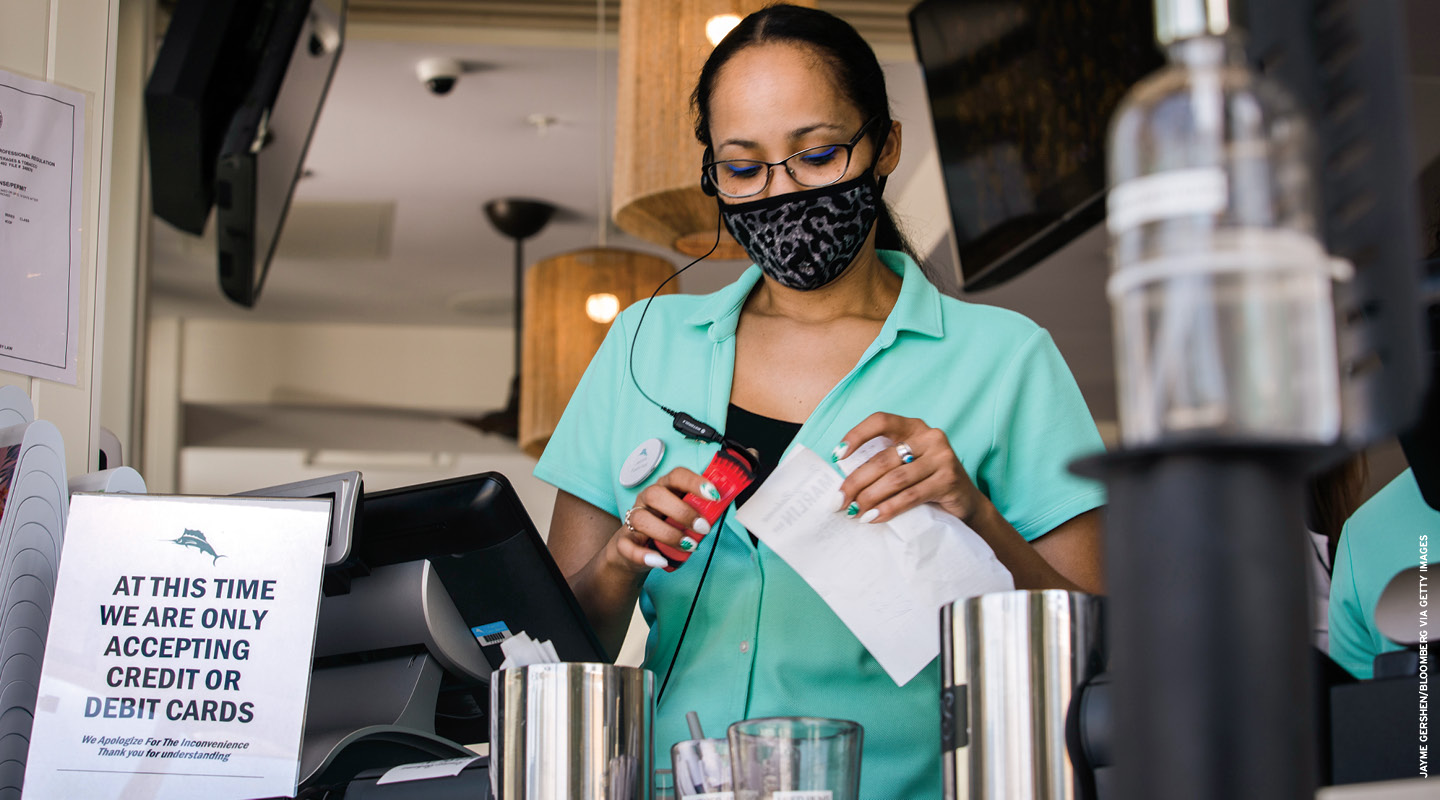Cash is supposed to be our universal currency. On the front of a dollar bill, it reads: “This note is legal tender for all debts, public and private.” Despite these words, there has been a growing wave of businesses recently that refuse to accept cash, opting instead to accept only credit or debit payments. This is not acceptable.
Consider what cashless businesses mean for the millions of Americans who are “unbanked”—who don’t have bank accounts, much less access to credit or debit cards. According to the Federal Deposit Insurance Corporation, 6.5 percent of Americans were unbanked as of 2017 and another 18.7 percent were “underbanked,” meaning they lacked access to most traditional banking services. Cashless businesses have the effect of discriminating against these Americans, keeping them from freely buying goods and services in an increasingly digital marketplace.

